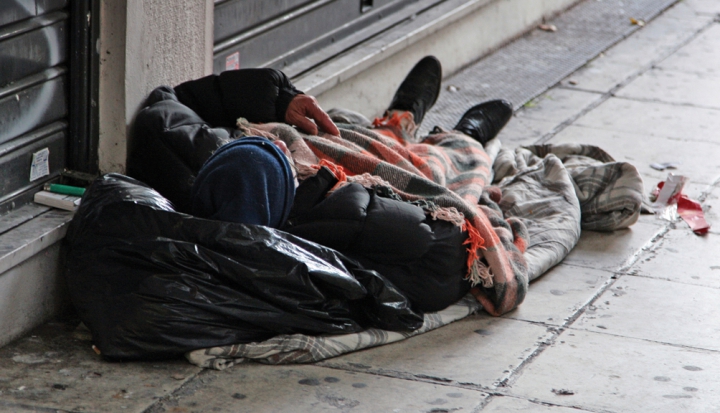When scandal looms, who are you going to call—Olivia Pope or Pope Francis?
“Thank God it’s Thursday!” my television announces, and I find myself entranced by the salacious and complex world of Olivia Pope, heroine of ABC’s Scandal. Political corruption, sexual infidelity, secrets, and hidden crimes abound. Through it all we anxiously anticipate Olivia’s confident refrain, “It’s handled.” Faith in Olivia as an arbiter of right and wrong is ambiguous and disconcerting, yet we cannot turn away. Writer-producer Shonda Rhimes draws us in by blurring the lines between fiction and reality, holding up a mirror to reveal our society’s fixation with political and sexual scandals.
What is it about these scandals that fascinates us? In order for a scandal to attract public attention and outrage, there must be an element of rivalry—I am most scandalized by those whom I would like to be. For this reason, society is most captivated by scandals of hypocrisy, corruption, and sexual impurity.
Take the case of Eliot Spitzer, whose public persona of integrity crusading against corruption as New York attorney general came crashing down when he was caught in a prostitution sting. Outrage at Spitzer’s hypocrisy was proportional to the desire for and rivalry with what he represented.
The same emotional trigger drives celebrity watching. A scandal both attracts and repels; in this tug of war it never quite satisfies. Still, in a globalized celebrity and reality television culture we see these scandals multiply exponentially. Just consider the amount of attention focused on the New England Patriots’ alleged illegal deflating of footballs used in the game that brought them to the 2015 Super Bowl, christened “deflate-gate.”
In Christian theology, however, the gravest scandals are those that lead the community away from God, that put a stumbling block between our neighbors and God. Thomas Aquinas says scandal is opposed to the virtue of charity. The gospels admonish us not to cause others to sin. In this way, Pope Francis warns of the inconsistent Christian who leads people to say, “I believe in God but not in the church, because you Christians say one thing and do another!” Scandal often begins with the failure of mercy. Jesus relentlessly doled out mercy; by healing on the Sabbath, he both scandalized others and challenged his society’s very definitions of scandal.
For Christians, widespread poverty and inequality is scandalous, even though no one calls Olivia Pope to handle it. Echoing his predecessors, Pope Francis frequently admonishes us that poverty is a scandal. He laments that when people with no homes die of exposure or children go to bed hungry, it is not major news—these do not scandalize us. We no longer feel responsible for each other, he notes, even running away from the very word solidarity. That is the true scandal.
How is poverty different from other scandals? It is rooted not in rivalry but in our common humanity. It begins with the recognition that we all have equal human dignity and that my humanity is bound up in yours. The scandal then is in the dehumanization of people who are marginalized, hungry, homeless, etc. As such, it is the graver scandal. It also perpetually fails to scandalize us. Why? Because as we see ourselves as more like celebrities or the public elite, the poor seem less and less our brothers and sisters, less and less like us.
The poor are often blamed for their poverty; our deep cultural indifference stems from our consumer culture. Thus, Father Bryan Massingale reminds us that “concern for the poor entails swimming upstream against powerful currents.” Part of swimming upstream is learning to be more scandalized by violations of human dignity than by celebrity escapades. For those of us who want to wear the white hats, it means being more scandalized by poverty and less by deflated footballs.
This column appeared in the April 2015 issue of U.S. Catholic (Vol. 80, No. 4, page 8).
Image: ©iStock/vasiliki















Add comment